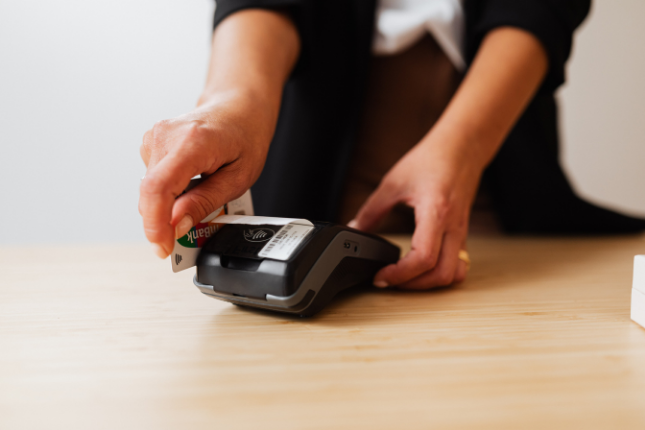For our third installment of our Info Series, we’re going to take a closer look into credit card terminals. These simple little machines come in many different forms. You can get them wired, wireless, or even virtually. It’s easy to look past the terminal due to their ubiquitousness, however, there’s several aspects of terminals often overlooked that are worth knowing. For example, how are they acquired? Is there a standard terminal for every business? How much do they cost? Let’s break it all down and illustrate how you can further improve your processing systems.
Acquisition
Terminal acquisition can be a challenge for a lot of merchants as a result of misinformation floating around the industry. As mentioned in our previous article, terminals are provided by the acquiring bank the merchant works with. This terminal acts as a beacon that provides the authorizations needed for processing credit and debit transactions. When merchants deal with their acquiring bank or an independent sales organization, they are faced with the decision as to whether they’d like to lease, buy, or rent their terminal.
These three options are the standard for merchants across the country. Each has their own pros and cons but given the developments of the processing industry, some options are more favorable than others. Some merchants agree to purchase the terminals outright, allowing businesses to own them right from the get-go. While this may seem appealing, terminals can carry a hefty upfront cost, adding another large chunk of change that needs to be recuperated in sales. Not to mention that if there are any technical issues, servicing can become a major headache. It is the purchaser’s responsibility to appropriately service and manage their terminals. Essentially, it adds another issue merchants will possibly have to worry about instead of focusing on selling their goods and services.
Next up there’s leasing. A leasing agreement locks merchants into a monthly annuity whereby they pay off the equipment provider for a series of time to eventually own their terminal. Servicing may be a bit easier while the lease is in effect (depending on the terms of the rental agreement) but again after that lease is over merchants come across the same issues of maintenance when they own the terminal. Leasing monthly costs are also at the discretion of the equipment provider and oftentimes, merchants are locked into expensive monthly leases that are very challenging to get out of until paid off in its entirety. If a merchant wishes to get out of their lease before it expires, most often they will be forced to pay the remaining balance and potential cancellation fees.
Lastly, we discuss credit card terminal rentals. We here at JAZ only provide rentals for the flexibility that it offers. As mentioned above, it’s difficult for a merchant to get out their lease until it’s paid off completely. We operate on monthly rentals so that merchants always have the ability to leave should they want to. We don’t like holding any merchants hostage, if they don’t want to do business with us they’re welcome to leave. This model builds a mutual trust between us and our clients and allows them to always do what’s best for their business. We provide extremely competitive rates for our rentals and always ensure that you’re taken care of in the case of technical issues.
Another thing to note, the processing industry is comparable to that of the smartphone industry. Every year new models are released as the technology is always improving. With rentals, we provide our clients with the option for free upgrades to their terminals. We provide a free swap of machinery to make sure our client’s needs are always met. It’s this service that enables us to have some of the highest retention rates in the industry! Our terminals start out at $35/month and when combined with our processing rates, we are extremely confident we can help your business save.
Credit Card Terminal Models
As mentioned above, POS terminals come in many different forms. With that in mind, there’s a model that fits every business’ specific needs. Let’s break down the options available to you.
The Keypads
These are the most common terminals on the market. Most merchants, especially smaller businesses, operate with keypad terminals. There’s several different models such as the Ingenico IC250, Ingenico Desk/5000 and Ingenico Move/5000 to name a few. While these models may not be equipped with the most robust functionality, they are certainly reliable. This is often what all business owners need. They want to be able to simply process payments and don’t really need the abilities that other smart terminals provide. As a result of their basic functionality, these models come at the lowest rental costs.
The Smart Terminals
These machines are honestly pretty spectacular. We like to think of these models as not just processing terminals, but a business management device. The advances that have been made with this technology is simply phenomenal and provides your business with a smoother and more efficient operation. Essentially these terminals now have been built in with the functionality of Enterprise Resource Planning systems. They enable you to coordinate your inventory, manage employee timesheets, and provide detailed insights on your business according to your sales activity. They’re mini computers, and the face of it all is the Newland 910 terminal. It has an Android OS which enables it to perform all of these capabilities as well as connect to your smart device. You’re able to manage your business anytime and anywhere.
For more information on these terminals, call us at 1-877-737-9749 and let’s find the best solution for your business!

